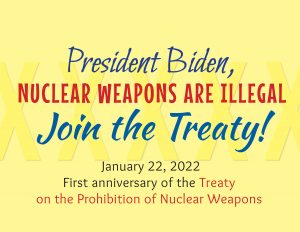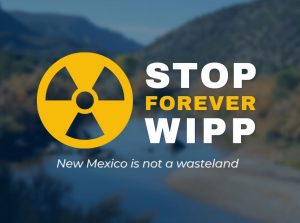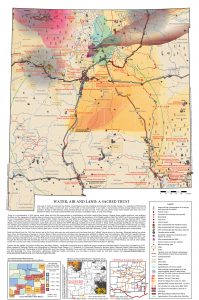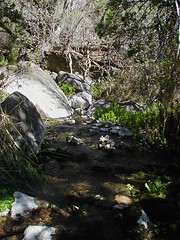Navajo Grassroots Organizations Celebrate Navajo Nation Council Vote Stopping Pro-Uranium Mining Legislation
CCNS NEWS UPDATE
Runs 7/25/14 through 8/1/14
(THEME UP AND UNDER) This is the CCNS News Update, an overview of the latest nuclear safety issues, brought to you every week by Concerned Citizens for Nuclear Safety. Here is this week’s top headline:
* Navajo Grassroots Organizations Celebrate Navajo Nation Council Vote Stopping Pro-Uranium Mining Legislation
This week the Navajo Nation Council’s Resources and Development Committee voted down a bill that would have opened up new uranium mining on lands adjacent to those of the Navajo Nation. In related action and in a vote of 18 to 3, the Navajo Nation Council approved a bill by Edmund Yazzie, a Council Delegate representing Churchrock, which provides for a more open and democratic process regarding uranium issues. The bill sets a precedent that all uranium-related bills must be heard before the full Council.
The votes fortify the Diné Natural Resources Protection Act, passed by the Navajo Nation Council in 2005, which placed a moratorium on all forms of uranium mining within Navajo Indian Country. A coalition of Navajo grassroots organizations opposed to uranium mining, called Concerned Diné Citizens, who worked together to defeat the bad legislation sponsored by former New Mexico State Senator and current Navajo Council Delegate Leonard Tsosie and supported Delegate Yazzie’s legislation securing community and ecological sovereignty.
For over two decades, Uranium Resources, Inc. (URI) has proposed to mine for uranium using an in-situ leaching methods in the Churchrock area. This proposition would contaminate the communities source of unspoiled drinking water derived from a below ground drinking water aquifer. In-situ uranium mining is similar to oil fracking, in that chemicals and large quantities of water are used to extract the uranium. In addition, radioactive radon is released into the air and heavy metals are mobilized through the leaching process.
Last year, the Churchrock Chapter passed a resolution that allowed URI to set up an in-situ leach uranium mining demonstration project on lands adjacent to the Navajo Nation in Churchrock. Over the years, there have been several attempts to limit the decision making processes around this project to fewer and fewer people. Thus, the vote on the Yazzie bill allows for more decision makers to be involved.
Uranium mining boomed in the 1950s and 1960s in the Grants uranium belt. The mines operated before the Clean Water Act was passed and before the Environmental Protection Agency was formed. Cleanup of the uranium mines and mills was required. Now, 137 of 259 of the known mines have no records of remediation, and Navajo families are living with the side effects.
Leona Morgan, an organizer for Diné No Nukes, said, “Now the Nation’s focus can go back to the over whelming needs for clean up, health studies, and water studies. In order for these controversial issues not to play out so divisively in the future, it is imperative that all people—not just Diné people—understand the scope and permanent effects of abandoned uranium mines.”
This has been the CCNS News Update. To support the work of CCNS, please make your tax-deductible contribution at http://www.nuclearactive.org.
Tags: Churchrock, Concerned Dine Citizens, Dine Natural Resources Protection Act, Dine No Nukes, Inc., Leona Morgan, Navajo Nation Council, uranium, uranium mining, Uranium Resources















Comments
No comments so far.